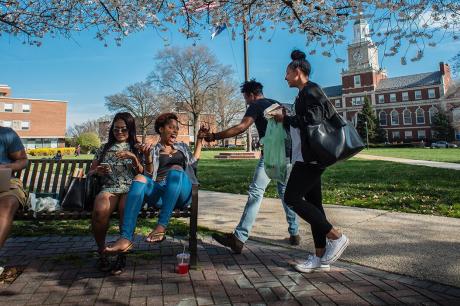Articles and analysis on today's issues

Ensuring federal data and statistical agencies like the Bureau of Labor Statistics remain open, independent, and objective is essential to economic growth and prosperity.
“Moving at the Speed of Trust”: How Environmental Justice Advocate-Researcher Collaborations Can Build Better Partnerships EJ advocates and researchers aren’t at odds but contribute diverse skill sets, tools, and expertise—and neither corners the market on any one resource or skill.How Funding Sources of Cash Transfer Programs Can Affect Participants’ Access to Safety Net Benefits Direct cash transfer programs are increasingly popular, but where the programs’ funding comes from can affect recipients’ eligibility for other benefits.Who Serves More People of Color in Mortgage Lending: Banks or Nonbanks? A new analysis shows banks make a lower proportion of their loans to neighborhoods and borrowers of color through both government and conventional lending channels.The Pandemic Exacerbated Mental Health Issues among Incarcerated Youth. How Can We Reverse the Trend? Gaining a better understanding of incarcerated young people’s mental health issues and providing equitable services will help meet their needs and reduce the rate of disorders.Excluding For-Profit Students from the Pell Increase May Not Have the Intended Effect Though passage of the Build Back Better Act looks increasingly unlikely, it proposes to limit the increase to eligible students enrolled in public and not-for-profit colleges and universities which could have ripple effects for how federal dollars are used to implement accountability in higherBlack Students Find Greater Satisfaction Attending Historically Black Colleges and Universities Black students’ higher rates of satisfaction at historically black colleges and universities (HBCUs) over Black students at non-HBCUs is an acknowledgment that despite the challenges facing HBCUs, they still deliver positive experiences and build great pride among their graduates.





